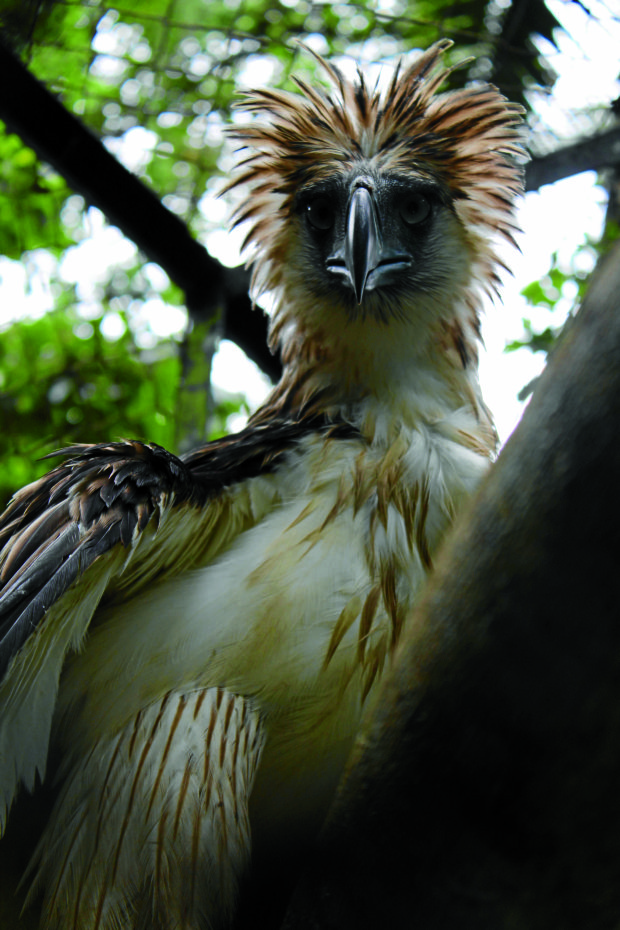PH eagle to be named Sakura in Abe’s honor

This Philippine eagle, which will be called Sakura, was rescued with a pellet wound in Davao del Norte. —PHILIPPINE EAGLE FOUNDATION PHOTO
DAVAO CITY—A 2-year-old female Philippine eagle will be officially named Sakura, the Japanese word for cherry blossoms, in honor of visiting Japanese Prime Minister Shinzo Abe.
Abe, who arrived in Manila on Thursday for a two-day official visit, will attend the naming rites on Friday at the Waterfront Hotel in Lanang, Davao City, President Rodrigo Duterte’s hometown, which hosted thousands of Japanese immigrants before World War II.
It would be stressful for the bird to be moved from its sanctuary to the hotel for the ceremony, so Abe would not be able to see the eagle himself, according to Dennis Salvador, director of the Philippine Eagle Center in Davao’s Calinan District. Instead, Abe will receive a framed photo of Sakura.
The eagle, which had been shot with a pellet gun in the abdomen, was rescued last month near a river in Talaingod, Davao del Norte province.
A critically endangered species, the Philippine eagle is one of the rarest and largest of its kind in the world. An adult could grow up to 1 meter in height and a wingspan of more than 2 meters.
Abe is the first foreign head of state to visit Mr. Duterte’s hometown. His trip will include a meeting with the President and businessmen at a business forum at Waterfront on Friday at the end of his official visit.
After taking an early lunch at the hotel’s Garden Pavilion with his party and Philippine officials led by Mr. Duterte, Abe will visit Mindanao Kokusai Daigaku, a Japanese-language school owned and operated by Japanese descendants.
Separately, Abe’s wife, Akie, will visit the Japanese Cemetery at Tacunan in Barangay Mintal, 12 kilometers from the city center. The cemetery, where a shrine to Japanese war veterans had been built, was part of what was then known as Little Tokyo.
Mintal was the business center for Japanese immigrants, who were mainly engaged in abaca production and trading in Davao in the early 1900s. They numbered more than 17,000 on the eve of World War II. —REPORTS FROM JEOFFREY MAITEM AND ALLAN NAWAL